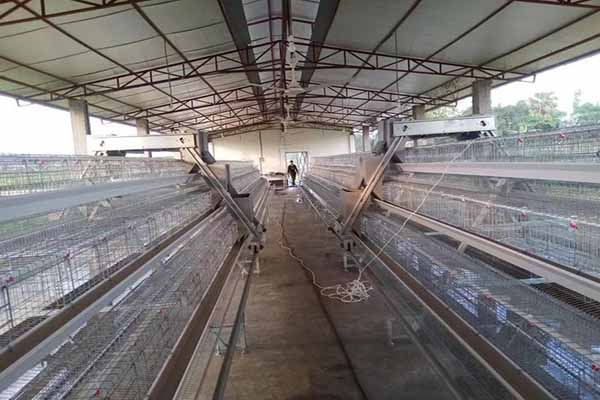Poultry Farming in Western Kenya: A Comprehensive Guide
Time : 2025-05-12
Poultry farming in Western Kenya is a thriving industry that has been growing at a rapid pace. With the increasing demand for poultry products and the availability of suitable climate and land, many farmers have turned to this lucrative business. In this article, we will delve into the various aspects of poultry farming in Western Kenya, including the types of poultry, the benefits, challenges, and tips for successful farming.
Types of Poultry in Western Kenya
The most common types of poultry in Western Kenya include chickens, ducks, turkeys, and guinea fowl. Chickens are the most popular, followed by ducks. Here’s a brief overview of each type:
Chickens
Chickens are the backbone of poultry farming in Western Kenya. They are versatile birds that can be raised for both meat and eggs. There are several chicken breeds, including layer breeds for eggs and broiler breeds for meat. The most popular layer breeds in the region are the White Leghorn and the Rhode Island Red, while the broiler breeds include the Cornish Cross and the Ross 308.
Ducks
Ducks are also a popular choice for poultry farming in Western Kenya. They are known for their delicious meat and eggs. The most common duck breeds in the region are the Pekin and the Khaki Campbell.
Turkeys
Turkeys are raised primarily for their meat. They are not as common as chickens and ducks but are gaining popularity among farmers. The most common turkey breed in the region is the Bronze turkey.
Guinea Fowl
Guinea fowl are known for their meat and their ability to keep pests away from the farm. They are a good option for farmers looking for a dual-purpose bird.
Benefits of Poultry Farming in Western Kenya
There are numerous benefits to engaging in poultry farming in Western Kenya:
Economic Benefits
Poultry farming can be a lucrative business, especially when managed properly. It provides a steady source of income for farmers, and the demand for poultry products is always high.
Nutritional Benefits
Poultry products, such as eggs and meat, are rich in protein and other essential nutrients. They are an important part of a balanced diet and can help improve the nutritional status of the population.
Environmental Benefits
Poultry farming can be environmentally friendly when managed sustainably. The waste from poultry farming can be used as organic fertilizer, and the animals can help control pests and weeds.
Challenges of Poultry Farming in Western Kenya
Despite the numerous benefits, poultry farming in Western Kenya also comes with its own set of challenges:
Disease Outbreaks
Disease outbreaks can be devastating to poultry farms. It is important for farmers to be vigilant and take precautions to prevent the spread of diseases.
Market Access
Access to markets can be a challenge for small-scale poultry farmers. Finding buyers and ensuring a fair price for their products can be difficult.
Feed Availability
The availability and cost of feed can also be a challenge. Poultry require a balanced diet, and the cost of feed can fluctuate significantly.
Tips for Successful Poultry Farming in Western Kenya
To succeed in poultry farming in Western Kenya, here are some essential tips:
Choose the Right Breed
Select the right breed for your farming goals. If you are aiming for egg production, choose a layer breed. If you are aiming for meat production, choose a broiler breed.
Ensure Proper Housing
Proper housing is essential for the health and well-being of your poultry. Ensure that the housing is well-ventilated, clean, and free from predators.
Provide a Balanced Diet
Feed your poultry a balanced diet that meets their nutritional needs. Use high-quality feed and avoid feeding them table scraps or other inappropriate foods.
Implement Biosecurity Measures
To prevent disease outbreaks, implement biosecurity measures. This includes regular cleaning and disinfection of the farm, vaccination of the birds, and limiting contact with other animals.
Develop a Marketing Plan
Develop a marketing plan to ensure you have access to markets for your poultry products. Consider selling directly to consumers, working with local markets, or exploring online sales channels.
Conclusion
Poultry farming in Western Kenya is a promising industry with many benefits. However, it also comes with its own set of challenges. By understanding the types of poultry, the benefits, challenges, and tips for successful farming, you can increase your chances of success in this industry. So, if you are considering starting a poultry farm in Western Kenya, start by doing your research, planning carefully, and taking the necessary steps to ensure your farm is a success.












